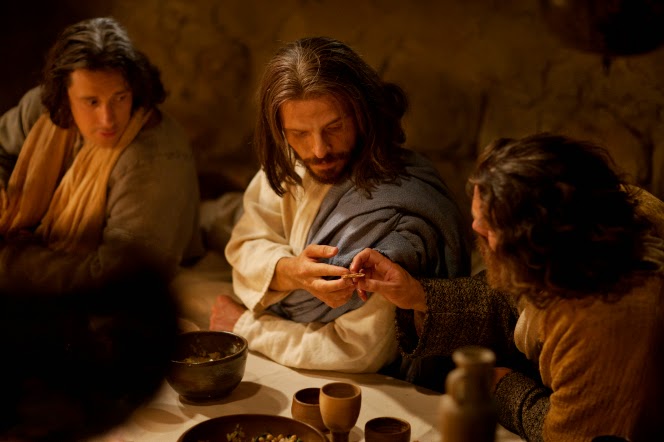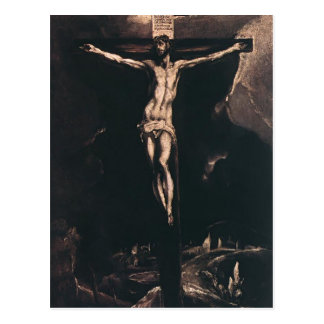Mormon Christianity has a lot of odd little teachings that don’t seem to add up to anything at first glance. Resurrected beings have bodies of flesh and blood. Heaven has three main degrees. Satan rules over the water. And Christ atoned twice, first in the Garden, second on the cross.
We do not know, we cannot tell, no mortal mind can conceive the full import of what Christ did in Gethsemane.
We know he sweat great gouts of blood from every pore as he drained the dregs of that bitter cup his Father had given him.
We know he suffered, both body and spirit, more than it is possible for man to suffer, except it be unto death.
We know that in some way, incomprehensible to us, his suffering satisfied the demands of justice, ransomed penitent souls from the pains and penalties of sin, and made mercy available to those who believe in his holy name.
We know that he lay prostrate upon the ground as the pains and agonies of an infinite burden caused him to tremble and would that he might not drink the bitter cup.
. . . .
Finally, on a hill called Calvary—again, it was outside Jerusalem’s walls—while helpless disciples looked on and felt the agonies of near death in their own bodies, the Roman soldiers laid him upon the cross. . . . The heavens grew black. Darkness covered the land for the space of three hours, as it did among the Nephites. There was a mighty storm, as though the very God of Nature was in agony.
And truly he was, for while he was hanging on the cross for another three hours, from noon to 3:00 P.M., all the infinite agonies and merciless pains of Gethsemane recurred.
-thus Bruce R. McConkie.
It was the redemption which He worked out in the Garden of Gethsemane and upon the cross of Calvary which made His gift immortal, universal, and everlasting.
-thus President Hinckley.
First glances are deceiving. In Mormonism, ordinary rocks can be seer stones, hardscrabble farm boys can be prophets. American frontiersmen can be the Kingdom of God, and doctrinal oddities can be profoundly meaningful.

The prophets repeatedly affirm that we do not know for sure how the atonement works. For sure we don’t know why Christ suffered twice. But seeing through a glass darkly is not the same as not seeing at all. Over the years, meditating on the double atonement and reading other Saints’ meditations has given me more understanding about the atonement and about the human condition. Here is a selection of some of the best of that.

Does the Atonement have Masculine and Feminine Halves?
|
Gethsemane |
Golgotha |
| Night | Day |
| Private | Public |
| Introverted/Psychic Emotional Suffering | Extroverted/Physical Violent Torture |
| Primary instrument = liquid (bleeding) | Primary instrument = solid (cross) |
| Inside of a garden | On top of a hill |
| Cyclical narrative | Linear narrative |
The table is from a Gently Hew Stone essay. The essay asks “is it a coincidence that the circumstances of Gethsemane are stereotypically feminine, and the circumstances at Golgotha are essentially masculine?”
*****************************************************

The Garden and the Cross Parallel the Bread and Water of the Sacrament
I first discovered this insight in comments made by Mark Butler and others here.
*****************************************************************************

Pointless, Repetitive Suffering was a Necessary Part of the Atonement
This insight is probably the one that most Saints will least accept but also the one to me that most feels like an insight into the mortal and even the divine condition.
Not all mortal suffering has a plan or a purpose. Certainly we experience a lot of suffering this way, where any meaning we get out of it comes much later and only tentatively. Not all suffering is a needed trial or a needed wake-up call. It may be that meaningless suffering is preparation for Godhood–because God suffers when his children reject them, and there’s no meaning to it. There is no greater good to it. It just sucks. The Atonement in the Garden is supreme suffering, but also supremely meaningful. How then can the meaningful, heroic Atonement redeem and sanctify our meaningless, unheroic suffering? Christ did everything the Atonement required in the Garden and that Golgotha was just cruelty.
*******************************************************************************

You Cannot Choose What You Haven’t Experienced
The truly voluntary act is one that is taken with full knowledge of the choices. Full knowledge is impossible without full prior experience. No one can know what they have not experienced. Or, at least, total knowledge of an experience–not just a description, but knowing exactly and fully how it feels, how it is– is identical to the experience itself. Christ couldn’t have known what was coming in the garden, so his atoning suffering there could not have been the result of a truly free, because truly informed, choice. To that extent, he was just as much battered in the dark as we are.
. . .
But if Christ suffered in the garden ignorantly, and to that extent involuntarily, his acceptance of the crucifixion could be considered fully voluntary, because he now knew what he was in for.
-from the essay Unchosen Suffering.
*************************************************************************

Suffering that You Can’t Choose to Stop is an Essential Part of the Mortal Experience
It is an important part of the Atonement that Christ suffered our sins and heartaches voluntarily. It was a free will sacrifice. At the same time, suffering involuntarily is an important part of the mortal experience. Christ seems to have been able to quit whenever he wanted in the Garden and in the run-up to the Cross. He had angel legions on tap, and in the Garden even had an angel right there standing by.
Pn the cross, the Father seems to have abandoned the Son. We may speculate that this was also a withdrawal of Christ’s ability to summon divine power and step down. His nails now truly bound him. On the Cross he may have passed the event horizon into helpless, involuntary suffering.
In the garden Christ retained his ability to say no, to draw on the rescuing angels and turn away the cup. So at every moment he had to choose to suffer in an immense and continual voluntas. But that on the cross the divine power he had always had withdrew with his Father. He was helpless then, and suffered without choosing. He knew the abandonment that we sinners know.
-also from the essay Unchosen Suffering.
Continue reading at the original source →



